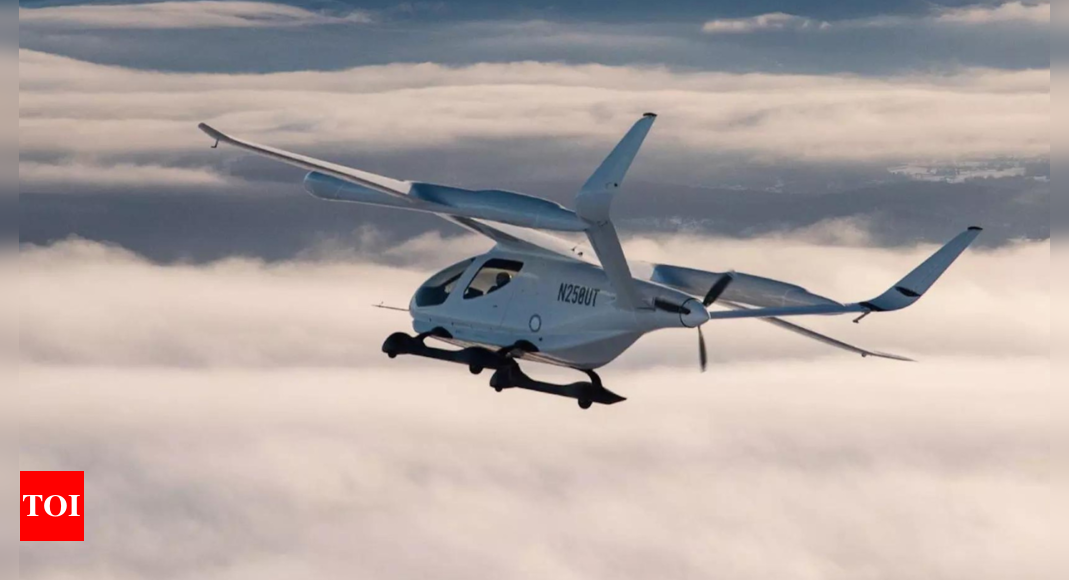CHENNAI: The electric airplanes developed by startup ePlane Company has received acceptance for type certification of the General Directorate of Civil Aviation (DGAC). This is the first Indian private company to be accepted under the new rules for electric vertical take-off and landing (eVTOL) planes issued last September.
The DGCA issued airworthiness criteria for type certification of aircraft with vertical take-off and landing (VCA) capability and issued specifications for the vertiports (terminals) used by them.
Founder Professor Satya Chakravarthy told TOI that the company has many firsts, including acceptance to trial eVTOL in India and testing propellers for the first time in the Indo-Pacific region. The startup aims to complete test flights by the end of 2026. “We will make multiple prototypes and then log cumulative flight hours to demonstrate compliance,” he said.
The company plans to provide air ambulances, cargo planes, charter flights at tourist sites and air taxis in major metropolitan areas. “The plane is spacious enough to operate a air ambulance with a stretcher that can be wheeled into the plane. For example, there is air ambulance, charter flights in tourist locations, air cargo, as well as taxis… We are looking for partners such as hospitals, vertical port builders, cargo infrastructure providers and charter flight operators. The company is establishing partnerships with real estate agents for the construction of vertical ports, airports and logistics providers, but this is at a very early stage,” he said.
The company is currently conducting trials only in India as the global regulatory framework for eVTOL evolves. “The Indian market is probably much more ready for this. Even than advanced economies, mainly because our city infrastructure is actually not that big and has higher traffic volumes,” he said.
Professor Chakravarthy is also optimistic about the viability of the business compared to traditional air ambulances as helicopters have maintenance and fuel costs and therefore lower patronage and asset utilization. “We’re going to go down a spiral where we’re essentially going to say it’s going to be much more affordable than what insurance companies are willing to cover today,” he said.
The IIT-M incubated startup has so far raised $20 million and plans to raise up to $30 million. “The more money, actually, would mean that we will be able to go to market directly instead of just finishing the certification. “It depends on how the market appetite for this grows, as we can show the first flight prototypes,” he said.





